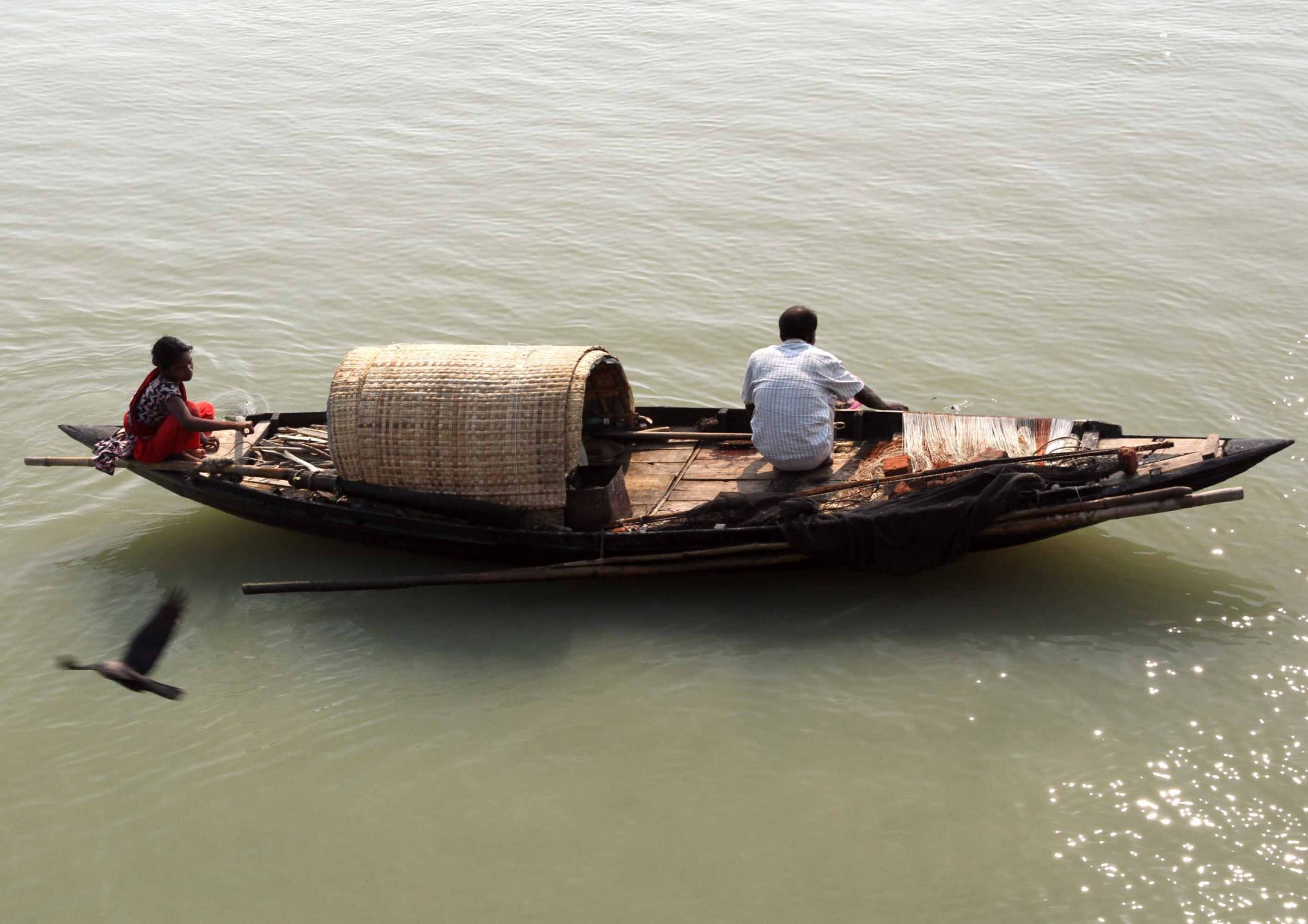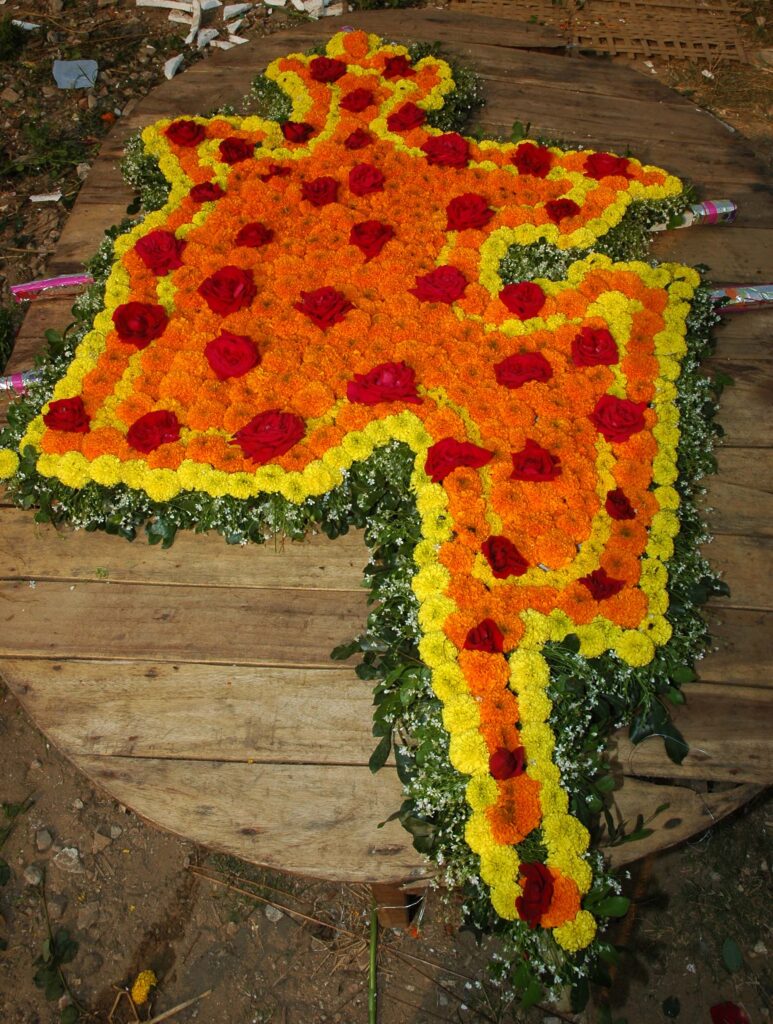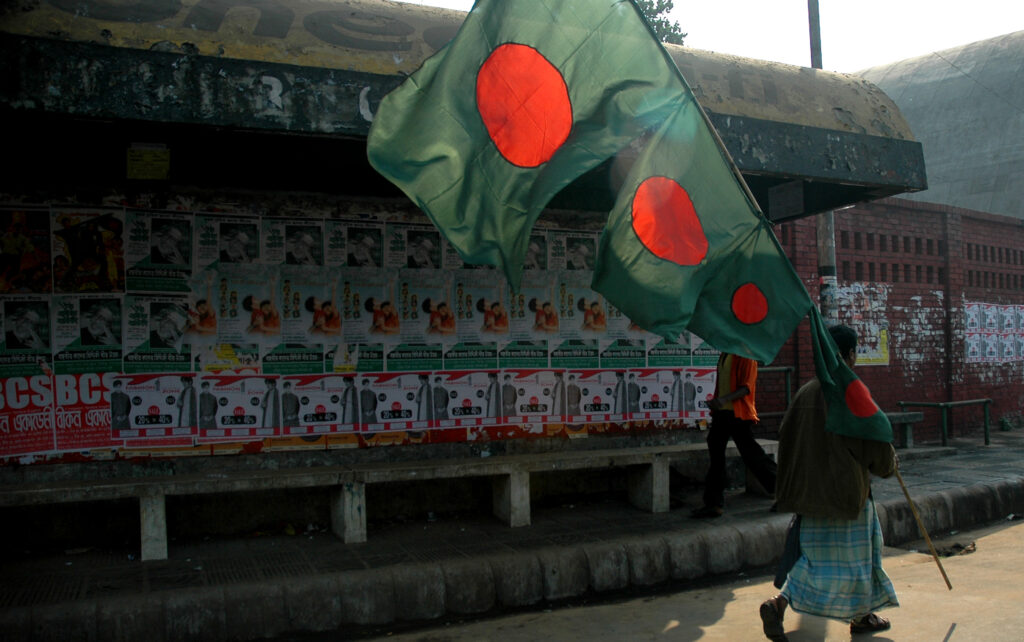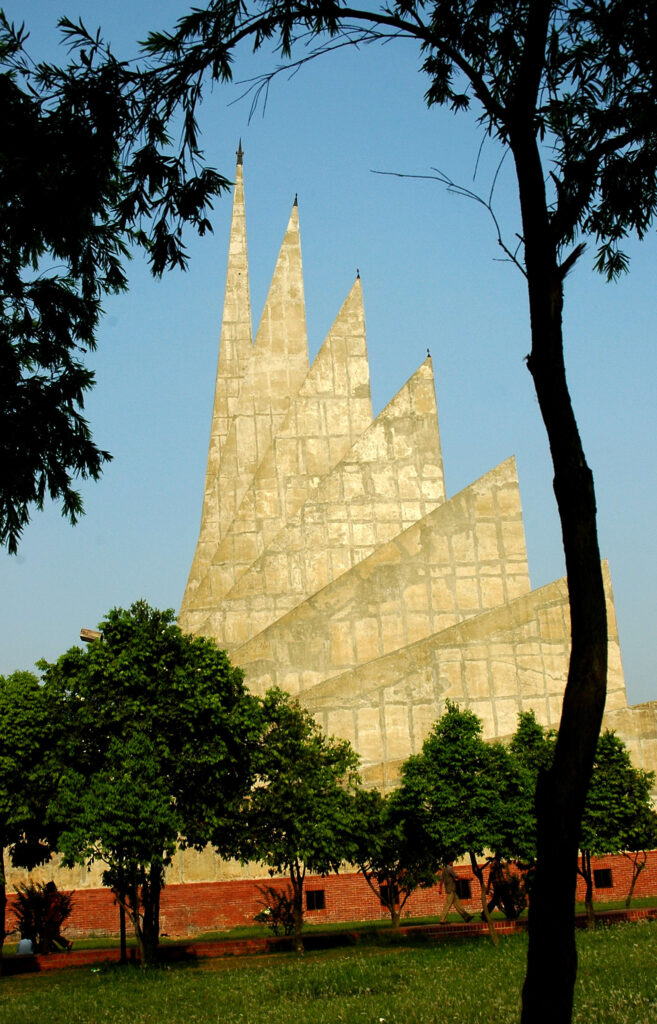I have slightly edited something I posted on Facebook more than five years ago, which was also published in Dhaka Tribune with a slightly different title.
Of the major causes behind the current problems of social polarisation and destructive political culture/conflicts in the country, in my view, the existence of the above belief amongst the supporters and adherents of Awami League and Bengali Nationalism stands at the apex. How Bangladesh develops into the future – the development of a culture of peaceful transition of power between political parties, the harmonious co-existence of opposing groups and the ending of the destructive polarisation within the country, etc. – will all depend on what kind of answer we find to the above question.
In this article, I argue that the Awami League and Bengali Nationalists do not have this right.
The issue of who has the right to dominate Bangladesh and all its constituent elements, if examined with critical thoroughness, starting with basic and first principle level analysis, then it should be possible to answer the question with definitive clarity. At the moment because of widespread confusion and an inability on our part to think with critical rigour we find ourselves unable to tackle the myriads of problems arising from this wrong belief held by the Awami League and Bengali Nationalists.
Do the Awami League and Bengali Nationalists have more rights to Bangladesh under any fundamental principles of governance, democracy and human co-existence within a defined geographical political entity? The answer to this question has to be a simple no, but the existence of this belief amongst the Awami League and the Bengali Nationalists in Bangladesh has been determining their destructive conduct in politics and how they participate in various economic and social processes of the country. The Awami League and Bengali Nationalists feel, in their minds and from their points of view quite legitimately, that they can use whatever means at their disposal to act on their greater rights to govern Bangladesh and determine its future. In the process, they do not care about the rights of others, which they feel are less legitimate, and as a result, they end up creating chaos, polarisation and continuous deepening pain in our society.
Why do the Awami League and Bengali Nationalists feel they have more rights to Bangladesh than any other groups? Essentially, it seems that there are two reasons. First, they believe that they are responsible for initiating the revolt against Pakistani rule and leading the 1971 Liberation War to victory. Therefore, they argue, they are the ones who properly understand the true spirit of the Liberation War and have the sole right to articulate its nature and perimeters. Second, they believe that one of the main reasons why the Bengalis of East Pakistan fought for the liberation of Bangladesh was because they wanted to preserve and progress their Bengali cultural identity, which was under threat in Pakistan. As such, only by being in power, they feel they can take the country towards the path of the true spirit of the Liberation War and preserve and promote the authentic cultural identity of the country. Rule by any other group, according to them, is a path towards anti the spirit of the 1971 Liberation War.
How valid are the above two grounds which underpin how the Awami League and Bengali Nationalists feel? Further, do the deductions made logically follow, in a valid way, from these two assertions acting as axioms? Here I will focus first on assertions and then look at the deductions made.
The Bangladesh Liberation War 1971 took place as a result of the Pakistani army initiating a planned military assault on the unarmed Bengalis of East Pakistan to silence them for demanding the implementation of the 1970 election result. Just like now, at that time, there were also all sorts of other demands made by a wide variety of groups in East Pakistan and, unlike now, then the legitimate Awami League’s voice was the strongest. When the war started the majority from all sections just joined in the struggle to liberate the country. Exactly what the liberated country should look like was not discussed and debated before the process of liberation had started.
The majority of the Bengalis in East Pakistan supported the Awami League Party under the leadership of Sheikh Mujib in the 1970 election who achieved an overwhelming victory. But the questions before the election were not about Bengali Nationalism, secularism or socialism. Rather, they were on an altogether different plane and based on Mujib’s six-point demands.
As the independence of Bangladesh was not one of the Awami League’s stated manifesto objectives of the 1970 election, which the party won with an overwhelming majority, can they claim to know the true spirit and inspiration behind why people from different walks of life joined in to fight against the Pakistani army’s unjust attack and occupation of the then East Pakistan. If the election manifesto were to include independence as a stated goal in 1970 what would have been the election outcome? Of course, it is impossible to know but the people in 1970 did not vote the Awami League into power to deliver a new country but to implement the party’s six-point demands.
The people were only compelled to fight for liberation once the Pakistani army acted unjustly and violently to prevent the implementation of the 1970 election results. Further, as those who fought bravely, including many who opposed the Awami League and Bengali Nationalism, became divided after the war means that they did not all fight to liberate the country for the same reasons, especially not based on the visions of the Awami League.
Hypothetically speaking, assume for a moment that the Awami League and Bengali Nationalism, being the leading party and running the government in exile during the war, understood more than any other groups the true spirit of the Liberation War. Does this mean they have more rights forever to govern Bangladesh and determine its future? The answer has to be simple and clear no. This is because human beings as individuals and groups (from family to tribes, ethnicity and nations) evolve and change their minds and develop different perspectives and aspirations. As such no one particular past generation can determine the future of all generations to come. Therefore, even if the 1971 liberation war had a true spirit that only the Awami League party best understand it does not mean that they have any intrinsic right to impose that on all future generations.
To conclude, as has been seen from the above analyses the Awami League and Bengali Nationalists do not know the true spirit of the 1971 Liberation War and their 1970 election victory with their particular manifesto do not give them an automatic right to determine what an independent country should look like. However, even, if hypothetically speaking, they had that right after the liberation, because they won the 1970 election, and the Liberation War struggles by Bengalis in East Pakistan was as a result of the Pakistani army initiating murderous attacks on unarmed civilians to prevent the implementation of the Awami League’s 1970 election manifesto, all future generations are not bound by how a particular generation in the past felt or did or wanted.
Further, people do change their minds and evolve during their lifetime. In the case of the Bangladesh Liberation War not all those who fought bravely did so for the spirit as articulated by the Awami League and some who did either changed their minds completely or underwent a process of evolution afterwards. People do and have the right to change their minds or think differently about small and big things, which happen all the time around the world and has happened many times in the land of Bengal.
For example, Bengali Muslims overwhelmingly supported the creation of Pakistan in 1947 and then in 1971, in reversal, overwhelmingly supported the 1971 Liberation War struggle to free Bangladesh from Pakistani rule. The 1971 struggle was for the break-up of a country called Pakistan established in 1947 with overwhelming Bengali Muslim support. Each time the vast majority of Bengali Muslims united to support one side first, in 1947 for partition under the leadership of Jinnah (Muslim League) and 1971 for liberation under the leadership of Sheikh Mujib (Awami League), and then quickly changed their minds and became disunited after the main objectives of the movements were achieved.




I think Bangladesh’s constitution will be able to answer your question?
Whether the people are supporting Awamilique or any other party, the fact is the country must have learn how to exercise the democratic systems of government as the constitution is ‘People Republic of Bangladesh’.
The people would need to be known its classification by now (50 years of independence) that it gives voting rights, allowed rule of law and separation of powers etc which were provided by this classification.
The current assumption is that the big political parties are the constitution of Bangladesh and they have been successful portrayed that ideology.
The people must come out from that assumption otherwise their dependency with awamilique or other party will be lasting forever without having to changed the government. The government also need to have the mentality that after 5 years there will be an another government which will be selected by the public if they don’t like them and without having to removed them forcefully. Ultimately the public have the right to select the government.